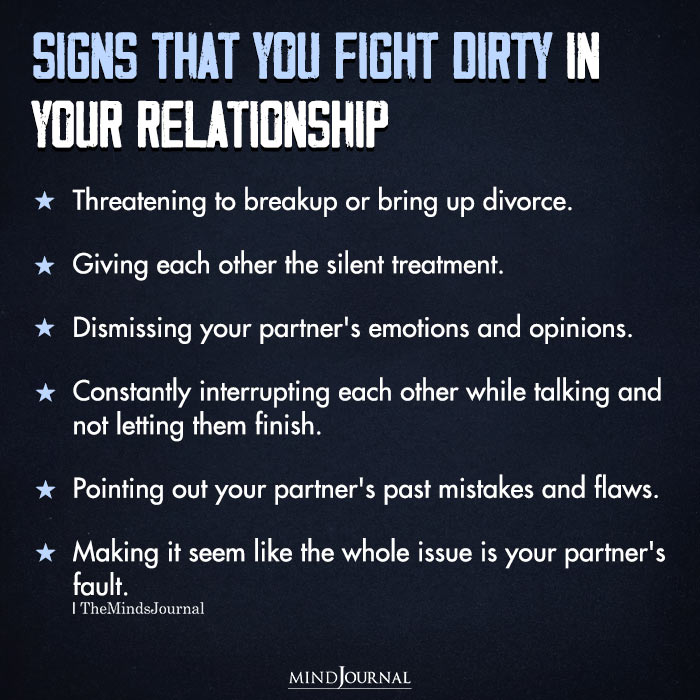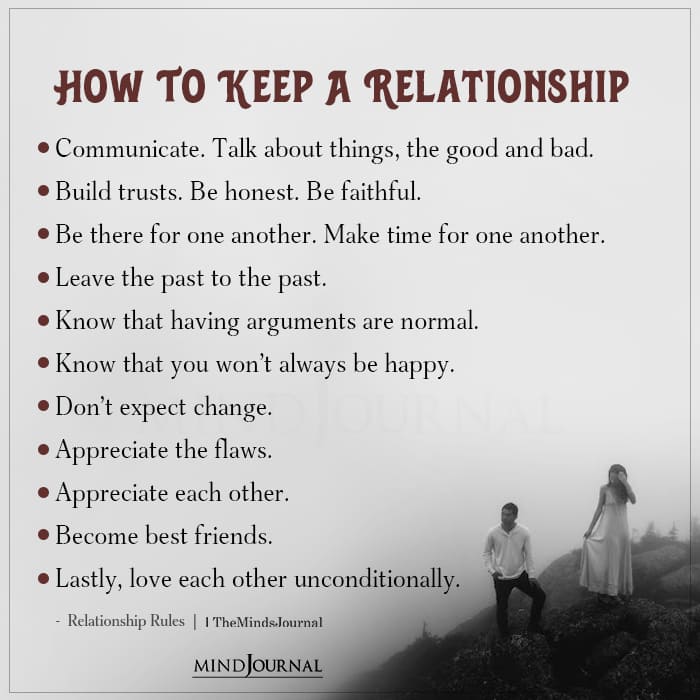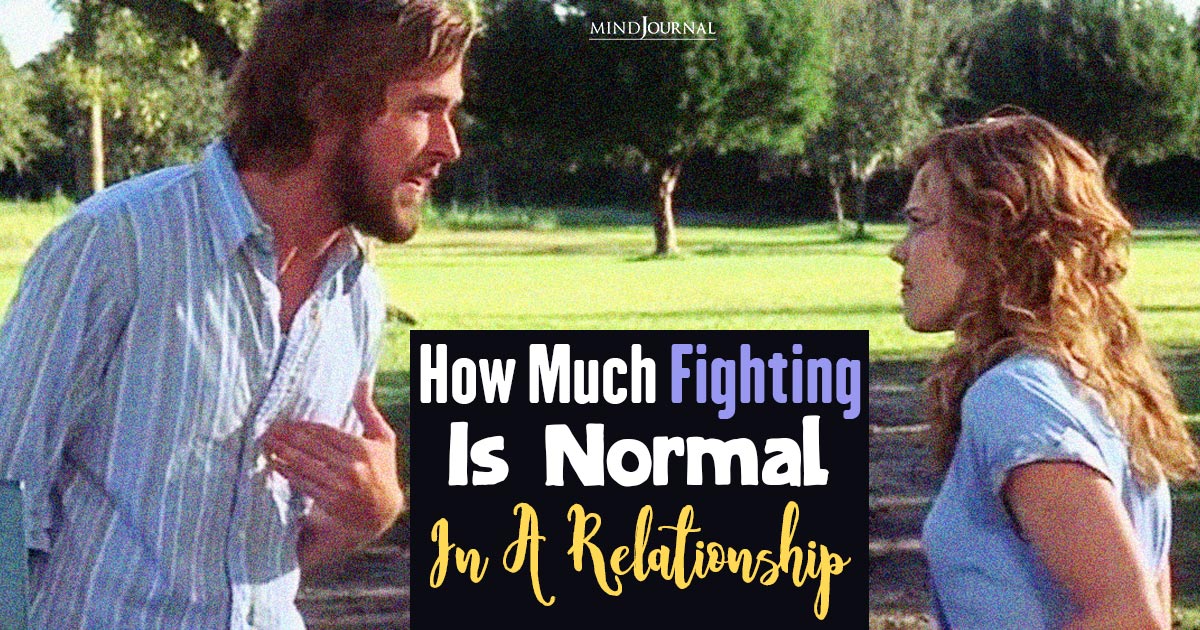All couples fight. Some fight a LOT, while others barely have an argument. But how much fighting is normal in a relationship? Do occasional spats signify trouble, or are they a sign of a healthy bond?
Love is a battlefield, and indeed, relationships can sometimes feel like a tug-of-war between two people who care deeply for each other. Disagreements and conflicts are a natural part of any intimate relationship, but have you ever wondered if fighting is good for your relationship? Or is it healthy to never fight in a relationship?
And most importantly, how to stop fighting in a relationship to create a more peaceful and harmonious bond with our partners? Today, we’ll explore these questions and figure out how to find balance and reduce conflict in relationships.
How much fighting is normal in a relationship?
Relationships are as unique as the individuals involved, and there is no fixed formula for determining how much fighting is normal. However, it’s essential to understand that conflicts are a natural part of any partnership.
The frequency and intensity of arguments may vary, but what truly matters is how they are resolved and whether they contribute to growth and understanding.
But how much fighting is normal in a relationship? Constant and intense fighting can be a sign of deeper issues within a relationship. On the other hand, a lack of conflict may indicate suppressed emotions or unresolved conflicts.
The key lies in finding a healthy middle ground where disagreements are addressed respectfully and constructively.
Related: How Productive Fighting Can Strengthen Your Relationship: 10 Ways

Things to consider
So how much fighting is normal in a relationship? This is a question that often arises when we reflect on the dynamics of our partnerships. The truth is, there isn’t a definitive answer and what may be normal for one couple might be excessive or insufficient for another.
However, there are some general guidelines and factors to consider when assessing the level of conflict in a relationship.
1. Frequency of conflicts
The frequency of conflicts can vary depending on several factors, including personality traits, communication styles, and external stressors. Some couples may engage in frequent disagreements, while others may experience conflicts less often.
It’s important to remember that occasional disagreements are a natural part of any relationship and can even be healthy, as they provide an opportunity for growth and understanding.
2. Intensity of conflicts
While the frequency of conflicts is one aspect, the intensity of those conflicts is equally important. Arguments can range from minor disagreements to full-blown shouting matches.
Excessive or intense fighting, characterized by insults, personal attacks, or physical aggression, is not considered normal or healthy in a relationship. These behaviors can be indicative of deeper issues and may require professional intervention.
3. Conflict resolution
Beyond the frequency and intensity of conflicts, what truly matters is how they are resolved. Healthy relationships prioritize constructive conflict resolution. Couples who are able to communicate openly, listen actively, and find compromises tend to experience less frequent and less intense conflicts.
It’s essential for both partners to feel heard, understood, and respected during the resolution process.
4. Individual and cultural differences
Individuals have different temperaments, communication styles, and conflict management strategies. Some people are naturally more assertive, while others are more accommodating. Cultural backgrounds and upbringing can also influence how conflict is perceived and managed within a relationship.
What may be considered normal in one culture or family may not be the same in another. It’s important to understand and respect these differences while striving for a healthy balance.
5. Emotional well-being
The impact of conflicts on the emotional well-being of both partners is a crucial consideration. If frequent or intense fighting leads to emotional distress, anxiety, or a decline in overall happiness, it may indicate an unhealthy level of conflict in the relationship.
Emotional well-being should be safeguarded, and steps should be taken to address and alleviate any emotional strain caused by conflicts.
It’s important to note that these factors are not absolute measures but rather guidelines for self-reflection and assessment. Every relationship is unique, and what works for one couple may not work for another.
When understanding how much fighting is normal in a relationship, the key is to create an environment where conflicts are addressed respectfully, resolved constructively, and contribute to the growth and strengthening of the relationship.
Remember, healthy relationships are built on mutual respect, effective communication, and a willingness to work through challenges together.
If you find that the level of conflict in your relationship is causing significant distress or impacting your overall well-being, it may be helpful to seek guidance from a relationship counselor or therapist who can provide personalized support and strategies for conflict resolution.
Related: 10 Dumb Relationship Issues You Need To Quit Getting Worked Up About

Is it healthy to never fight in a relationship?
While the idea of a conflict-free relationship may sound appealing, it’s important to realize that a complete absence of conflict is neither realistic nor healthy. Disagreements can provide opportunities for growth, understanding, and strengthening the bond between partners.
Suppressing conflicts or avoiding them altogether can lead to resentment, frustration, and a lack of emotional intimacy.
The goal is not to eliminate conflict but to learn how to navigate it effectively. Healthy relationships require open and honest communication, active listening, and the willingness to compromise.
So is it healthy to never fight in a relationship? Yes, but it depends. It’s essential to focus on finding resolutions that satisfy both individuals rather than striving for an outright victory in every argument.
How to stop fighting in a relationship
Still wondering how much fighting is normal in a relationship? Constant bickering and arguments can take a toll on any relationship. That’s why it is crucial to know how to stop fighting in a relationship and resolve issues in a healthy way.
Now that we know the answer to “is it healthy to never fight in a relationship?”, here are some effective strategies and practical tips on how to minimize conflicts and foster harmony in your relationship –
1. Cultivate effective communication
Open and honest communication is the cornerstone of a healthy relationship. It’s crucial to express your thoughts and emotions without attacking or blaming your partner.
Active listening, empathy, and seeking to understand their perspective can foster mutual respect and reduce the likelihood of escalating conflicts.
2. Identify underlying issues
Often, conflicts are not solely about the surface-level disagreement but can stem from deeper underlying issues. Take the time to reflect on your own feelings and needs, and encourage your partner to do the same.
By addressing these root causes, you can work together towards resolving conflicts more effectively.
3. Practice empathy and understanding
Empathy is the ability to put yourself in your partner’s shoes and understand their emotions and perspective.
By cultivating empathy, you can develop a greater understanding of each other’s needs and motivations, leading to more compassionate and constructive conflict resolution.
Related: Feeling Stuck In Useless Relationship Fights? 3 Steps To Get Out
4. Choose your battles wisely
Not every disagreement warrants a full-blown argument. It’s important to differentiate between significant issues that require discussion and minor differences that can be easily let go.
Learn to prioritize and focus on the matters that truly impact the relationship’s well-being. This is how to stop fighting in a relationship.

5. Seek professional help if needed
Sometimes, conflicts can become deeply ingrained and difficult to resolve without external support.
If you find yourselves stuck in a cycle of repetitive arguments or struggling to communicate effectively, seeking the guidance of a couples therapist or relationship counselor can be immensely beneficial.
6. Practice active listening and validate emotions
One common trigger for fights in relationships is feeling unheard or invalidated. To understand how much fighting is normal in a relationship and to prevent conflicts from escalating, it’s essential to practice active listening. Give your partner your undivided attention, maintain eye contact, and truly listen to what they are saying.
Show empathy and validate their emotions by acknowledging their perspective, even if you don’t agree with it. Making your partner feel heard and understood can diffuse tension and create a more cooperative atmosphere.
7. Take responsibility for your own actions
Fighting in a relationship often involves blame and finger-pointing. Instead of getting caught up in a cycle of defensiveness, try taking responsibility for your own actions and contributions to the conflict.
Recognize your part in the disagreement and express genuine remorse if necessary. By owning up to your mistakes and showing accountability, you set a positive example and encourage your partner to do the same.
8. Establish healthy boundaries
Setting clear boundaries is crucial for maintaining a healthy and respectful relationship. When conflicts arise, it’s important to establish boundaries that promote constructive communication.
Agree on guidelines for discussing sensitive topics, such as avoiding name-calling or interrupting each other. Establishing these boundaries can create a safe space for dialogue and prevent fights from spiraling out of control. This is an excellent tip on how to stop fighting in a relationship.
Related: 10 Mean Fighting Strategies To Avoid In Relationships
9. Practice self-care and manage stress
External stressors can significantly impact the frequency and intensity of conflicts in a relationship. It’s important to prioritize self-care and manage stress effectively to reduce the likelihood of fights.
Take time for activities that help you relax and recharge, such as exercise, meditation, or engaging in hobbies. By maintaining your own emotional well-being, you’ll be better equipped to handle conflicts calmly and rationally.
10. Seek compromise and find win-win solutions
Rather than approaching conflicts with a win-lose mentality, strive for win-win solutions that meet the needs of both partners. Instead of focusing on proving yourself right or dominating the argument, shift your mindset towards finding common ground and mutually beneficial resolutions.
Compromise is an essential component of healthy relationships, and seeking solutions that satisfy both individuals can foster a sense of cooperation and strengthen the bond between partners.
Remember, resolving fights in a relationship is an ongoing process that requires effort and commitment from both partners. It’s about fostering open communication, empathy, and a willingness to find common ground.
By implementing these strategies and continuously working on improving the way you handle conflicts, you can create a more peaceful and harmonious relationship.

Takeaway
Conflict is an inevitable part of any relationship, but it is the way we handle it that truly matters. While there is no fixed measure of how much fighting is normal in a relationship, it is essential to focus on fostering open communication, empathy, and understanding.
By cultivating these qualities, we can reduce conflicts, strengthen our bonds, and create a more harmonious and fulfilling partnership. Remember, it’s not about avoiding fights altogether, but about transforming conflicts into opportunities for growth and connection.
Related: 10 Tips On How To Make Up After a Fight
Frequently Asked Questions (FAQs):
What is a healthy amount of fighting in a relationship?
A healthy amount of fighting in a relationship varies depending on the couple’s communication style and conflict resolution skills.
Is it normal to argue everyday in a relationship?
Arguing every day in a relationship may suggest deeper issues that need addressing, such as unresolved conflicts or communication breakdowns.
How long is too long for a fight in a relationship?
It’s subjective, but if a fight in a relationship lasts more than a day or significantly impacts daily life, it may be too long.









Leave a Reply
You must be logged in to post a comment.